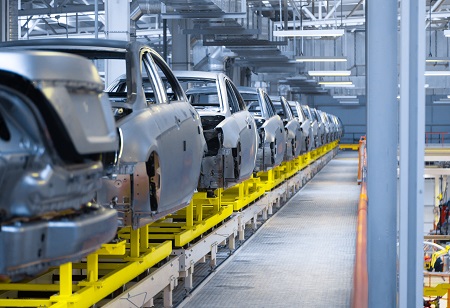
On Dec. 31 last year, Hyundai Motor signed a memorandum of understanding (MOU) with the Saudi Arabian government to expand car production within Saudi Arabia. Industry sources reported on the 17th that Hyundai is set to finalize this agreement with the Saudi government this month, merely nine months after inking a MOU concerning the 'Joint Development of the Saudi Automotive Industry' in January.
According to the agreement, Hyundai will establish an automotive factory in the Middle East for the first time, employing the Complete Knock-Down (CKD) method to assemble both electric and internal combustion engine vehicles. CKD involves exporting vehicles in parts and then assembling them locally for sale as complete vehicles.
Furthermore, Hyundai might benefit from electric car subsidies. While Saudi Arabia currently lacks regulations on electric car subsidies, it’s predicted that to energize their domestic electric car industry, the Saudi government will grant subsidies to locally produced electric vehicles. If Hyundai receives such benefits, its price competitiveness will be significantly bolstered.
Primarily reliant on imports for their vehicular needs, Saudi Arabia is the largest automotive market in the Middle East. The Saudi government has invested billions of dollars in a project aiming to manufacture 500,000 electric vehicles annually by 2030. For this project, they plan to convert 30% of vehicles in Riyadh's capital to electric and allow only eco-friendly vehicles in the future, Neom City, scheduled for completion by 2030.
According to global market research firm focus2move, new car registrations in Saudi Arabia for the first half of the year increased by 16.8% compared to the same period last year, recording 338,956 units. By company, Toyota led with sales of 112,584 units, followed closely by Hyundai, which sold 47,218 units.

